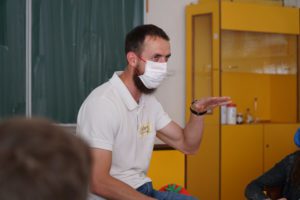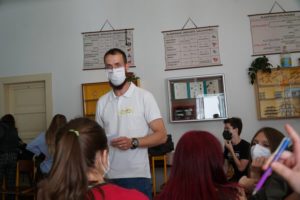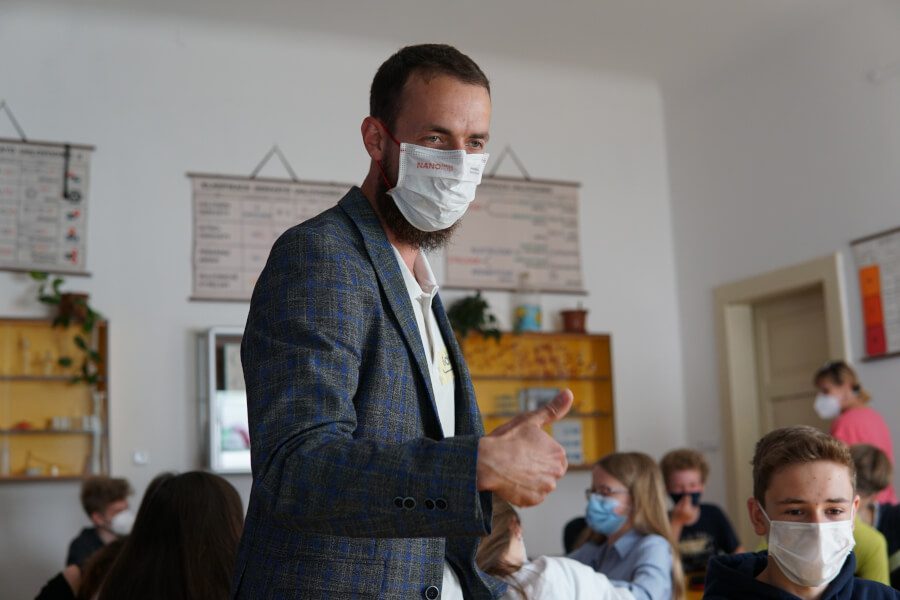“So that everyone can accept himself with what he has and with what he lacks.”

Ondrej explains to the children that they cannot change some things about the way they look. He also encourages them not to give up.
Ondrej and I found ourselves in a somewhat noisier group of children in the eighth grade of primary school. Not surprisingly, the system of rotational education had ended barely 14 days ago and everyone still had respirators on their faces.
The accumulated energy after the long “lockdown” (ed. note: the closure of schools during the coronavirus pandemic) was evident on the children. Nevertheless, the talk about appearance and life values gradually calmed down the atmosphere and drew all of us into the world of thinking about what is important for human beings.
For example, the life story of a wartime fighter pilot whose face was disfigured by a plane fire. Indeed – in the picture that Ondrej showed the children, he did not look well at all. When his wife visited him, he told her, “You’re probably going to leave me, now that I look terrible.” She replied, “But you were never very handsome.” And she didn’t leave him.

Children pay close attention. Ondrej’s talk about the cult of the beautiful body is really interesting for them and definitely actual at their age.
Further thought was evoked by a game in which the children had to sort out in groups the “values” written on the papers. They “found themselves” on an island where their situation was becoming more and more difficult, and so it was necessary to keep only what was most valuable.
Petr Horacek, the Executive Director of INCZ





